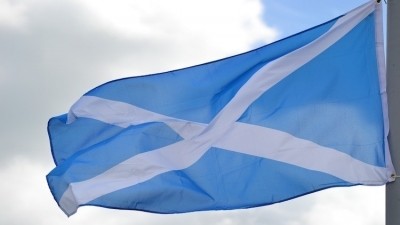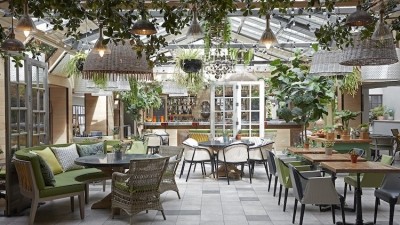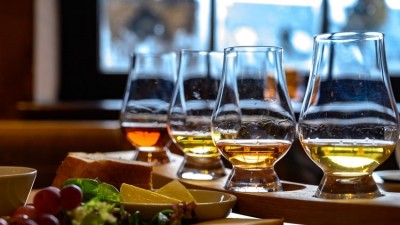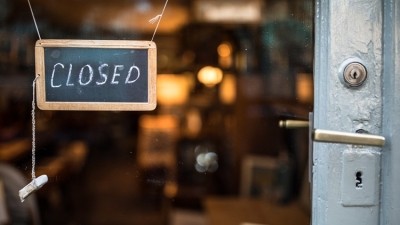Scottish restaurants and pubs face ‘permanent closure' under tighter Covid restrictions
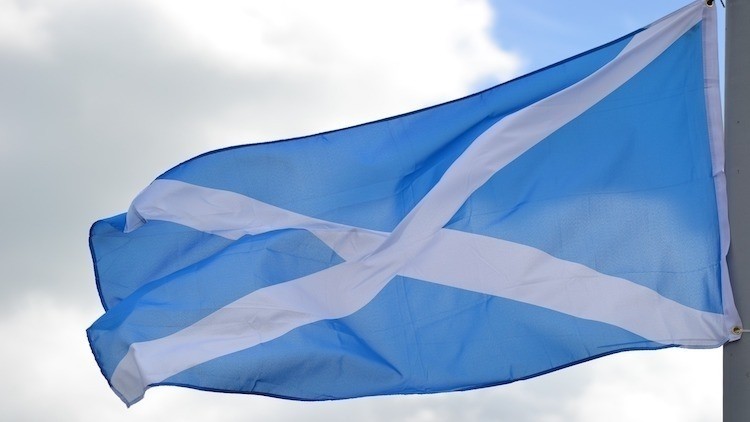
Scotland’s first minister has said that the local authorities of Glasgow City, North Lanarkshire, South Lanarkshire, West Dunbartonshire, East Dunbartonshire, Renfrewshire, East Renfrewshire, West Lothian, East Ayrshire, South Ayrshire and Stirling will enter level 4 - the highest of Scotland’s five-level lockdown system - from 6pm on Friday 20 December.
Under a level 4 lockdown pubs, restaurants and cafes have to close as well as non-essential shops will close, although businesses can offer takeaway menus. Schools can remain open.
The restrictions have no end date but have been described by Sturgeon as being for a limited period of time. They will impact around two million Scots.
Scotland's five-level system
Level 0 - hospitality businesses are able to trade, although some time restrictions may apply, and up to eight people from three households will be permitted to meet indoors.
Level 1 - indoor meetings are reduced to six people from two households, with hospitality businesses able to trade under the same restrictions as level 0.
Level 2 - an additional ban on gatherings inside homes, a curfew placed on hospitality and alcohol sales only permitted with a main meal when consumed indoors.
Level 3 - both indoor and outdoor alcohol sales are banned, and food sales are allowed only within certain times, forcing much of hospitality to close completely.
Level 4 - a complete shutdown in hospitality and non-essential retail, although six people from up to two households will still be able to meet outdoors.
Responding to the announcement, Colin Wilkinson, managing director at the Scottish Licensed Trade Association’s (SLTA), described the move as “the worst possible news for the licensed hospitality industry”.
“There will be many operators who will now be seriously considering if their businesses have a future at all – that’s how serious the situation is,” he says.
“Many operators in levels two and three areas have already taken the reluctant decision to close down their businesses as it is simply unviable to operate with the current restrictions on the sale of alcohol and the operating times that are currently in place.
“Even hotels and restaurants serving food feel defeated by these unnecessarily complex and ever-changing guidelines.
Wilkinson says that the moving into level four suggested that the closure of pubs and bars in October in five health board areas, prior to the introduction of the tier system, has done little to bring down the rate of Covid-19 infections.
“And yet again, there has been no meaningful engagement with our industry and there has been no evidence to prove that the virus is being spread within the licensed hospitality sector,” he says.
“We reiterate that we support the goal of suppressing the virus – of course we do. But we also reiterate that we are a sector in crisis with hundreds of businesses facing permanent closure and thousands of jobs hanging in the balance.
More support for businesses
The Scottish Tourism Alliance (STA) has called on the Scottish Government for more support for businesses hit by the new restrictions.
“The First Minister’s announcement today that 11 of Scotland’s local authorities will move into Level 4 from Friday will be the final blow for many of Scotland’s tourism and hospitality businesses in these areas which have struggled to survive throughout this pandemic," says chief executive Marc Crothall.
"The STA is fully supportive of the right measures to protect public health in the short and longer term balanced with policy to protect the needs of the economy, particularly the tourism sector which has undoubtedly been the hardest to be hit by the pandemic, however, the reality is that without a robust increase in funding support, businesses will continue to close."
Crothall describes the current grant support available to the majority of businesses right across the sector in all tiers as "still some distance from the level required to enable many to remain solvent and meet the costs of staying closed in the period ahead" and called for specific and targeted support to help them survive what he describes as a ‘third winter’.
The SLTA estimates that two-thirds of hospitality businesses in Scotland could be mothballed or forced to close in the coming weeks, with more than 50% of jobs lost in the pub and bar sector.
